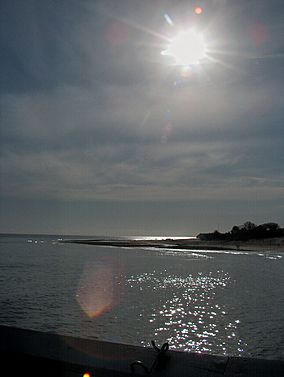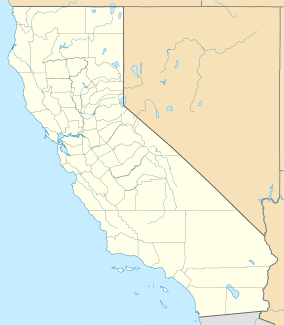Malibu Lagoon State Beach facts for kids
Quick facts for kids Malibu Lagoon State Beach |
|
|---|---|

Malibu Lagoon State Beach on a calm day
|
|
| Location | Los Angeles County, California, USA |
| Nearest city | Malibu, California |
| Area | 110 acres (45 ha) |
| Established | 1951 |
| Governing body | California Department of Parks and Recreation |
Malibu Lagoon State Beach is a special beach in California, United States. It's part of the Santa Monica Mountains National Recreation Area. Many people know it as Surfrider Beach because it's famous for its amazing waves.
This beach is in Malibu, California. On October 9, 2010, it became the very first World Surfing Reserve. This means it's a super important place for surfing around the world! The beach covers about 110-acre (45 ha) of land. It was made a California state park in 1951.
What is Malibu Lagoon?
Malibu Lagoon is a unique place where the Malibu Creek meets the Pacific Ocean. This type of area is called an estuary. It's a mix of fresh water from the creek and salty ocean water.
Many groups are working together to keep Malibu Lagoon healthy. It's a vital stop for migratory birds that fly along the Pacific Flyway. This is like a superhighway in the sky for birds! You might even spot Snowy Plovers nesting on the beach. These small birds are very special.
Catching Waves at Surfrider Beach
Malibu Lagoon is super famous for its surfing. It has a "right-break" wave, which means the wave breaks from left to right as you look at the shore. This spot had a huge impact on surfing culture in Southern California back in the 1960s.
The beach is near the Malibu Pier. It's one of the most popular surf spots in Los Angeles County. The waves here are known for being smooth and long. Surfers from all over the world think these waves are the best for "point" surf, especially in summer.
Malibu Lagoon has three main areas for surfing:
- First Point: This spot is great for longboarders. Shortboarders also enjoy it when the waves are bigger.
- Second Point: This area is for more advanced surfing. It has a main takeoff spot that connects to an inside section called the "kiddie bowl."
- Third Point: This spot has both a left and a right side. When big waves come from the south, usually in late August and September, surfers can ride them all the way to the pier!
 | William Lucy |
 | Charles Hayes |
 | Cleveland Robinson |



